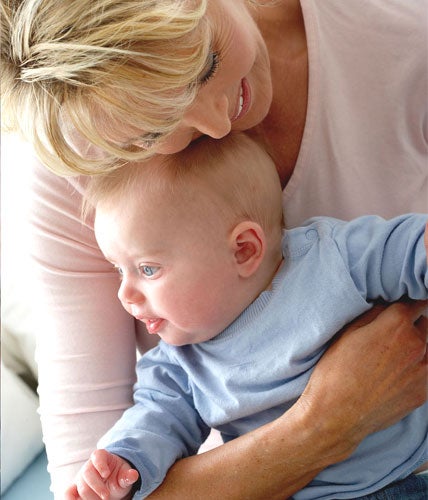Recession blamed as birth rate falls for first time since 2001

The birth rate in England and Wales has fallen for the first time since 2001, suggesting that the recession may have forced couples to postpone plans to add to their families. However, the number of babies born to older mothers continued to rise and has now almost trebled in 20 years, according the Office for National Statistics.
In 2009, there were 706,248 live births – down from 708,711 in 2008, which was a drop of 0.3 per cent. Of those, there were 26,976 live births to women aged 40 and over, almost treble the 9,336 in 1989 and almost double the 14,252 in 1999. Among women aged 35 to 39, there were 114,288 births in 2009, a rise of 41 per cent on the 81,281 in 1999. But the birth rate fell for women under 35, the data showed.
These changes mean the average age at which a woman becomes a mother for the first time rose to 29.4 in 2009, compared with 29.3 in 2008 and 28.4 in 1999. In 2009, women had an average of 1.95 children each, down from 1.97 children in 2008.
Siobhan Freegard, founder of Netmums, the parents' networking website, said the statistics confirmed the findings of a poll of 500 mothers conducted for the site. It showed that almost one in 10 women had definitely decided to abandon plans for another child because of the recession. A further one in three had put their plans on hold until their finances improved.
Ms Freegard said: "Anecdotally it seems to be the middle income families who have been hit hardest by the recession. They are the ones who are putting off having another child because they are only just keeping their heads above water.
"I think that older mothers may be more financially secure and also once someone gets to the stage when their biological clock is ticking they will be less likely to let money affect their decision."
Vicky Probert, 35, had hoped to start trying for a third baby last year. But then her husband, George, lost his construction job last August and their plans were put on hold.
Mrs Probert, mother of Honey, five, and Maisy, two, said: "Although my husband found another job things are a lot tighter financially.
"Having a third baby would mean moving up a car size, rearranging the layout of the house and ultimately we'd have to move because we only have three bedrooms.
"I think my husband would be happy not to have another one. But I'd still like to think that we will have another baby at some point."
Dr Ernestina Coast, senior lecturer in population studies at the London School of Economics, said it was too soon to predict the short-term impact of the economic crisis on fertility in the UK, although it was possible that it would negatively affect fertility in the long run. She added: "We know that the Great Depression was associated with large fertility declines."
Louise Silverton, deputy general secretary of the Royal College of Midwives, welcomed the figures, saying that the last seven years of rises had put maternity units under incredible strain.
Separate figures revealed yesterday that the number of abortions in England and Wales has fallen for the second year in a row, by 3.2 per cent, from 195,296 in 2008 to 189,100 in 2009.
Join our commenting forum
Join thought-provoking conversations, follow other Independent readers and see their replies
Comments
Bookmark popover
Removed from bookmarks